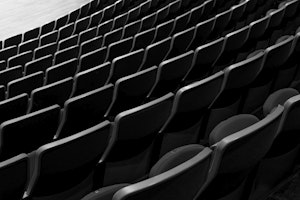On Wednesday 21 April, students and faculty hosted an open panel discussion on topics related to racial inequality and music history, traditions and repertoire taught at the Academy. The virtual event was part of STUDENT Talks and CEMPE Talks, conversation series that discuss ideas and topics relevant to students, faculty and music professionals.
The topics and questions discussed at this event are also relevant in relation to the Academy’s diversity and equality policies. Encouraging such open conversations is one of several initiatives that aim to increase awareness of diversity and (in)equality. This event posed questions such as: Is there racism at the Academy; and if so, how is it experienced? How can students, faculty and staff contribute to preventing discrimination and racism, and challenge the supremacy of white, western music culture?
Ahead of the event, Donytt published a student essay on the subject, titled “We are the musicians of tomorrow! Let’s influence!”. The essay, written by one of the initiators behind the event, argues for decolonising the curriculum by including a wider range of perspectives, to ensure a more inclusive understanding of music and its social roles.





